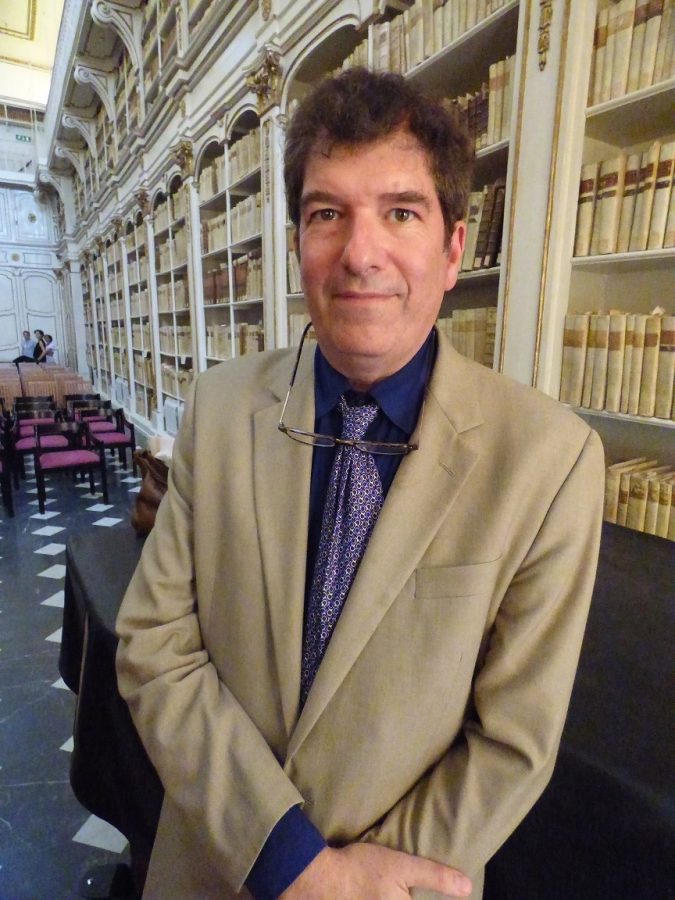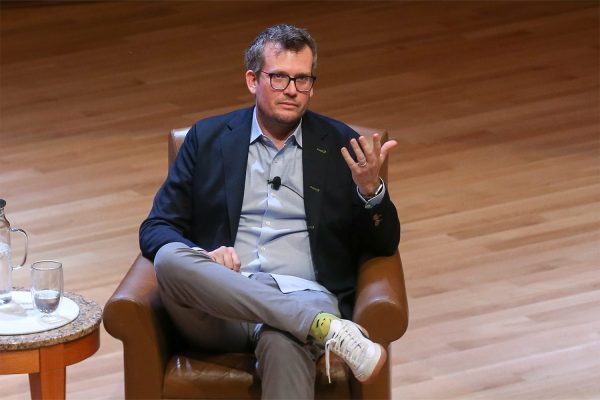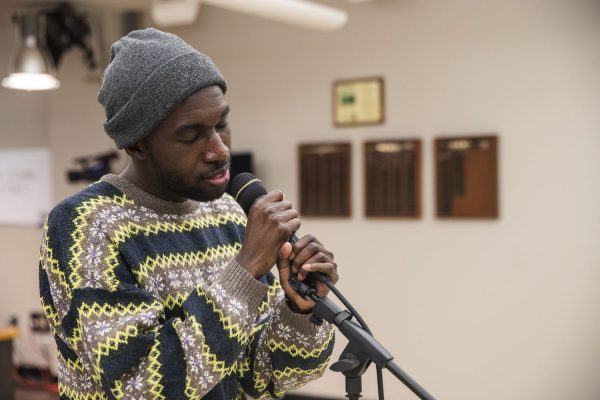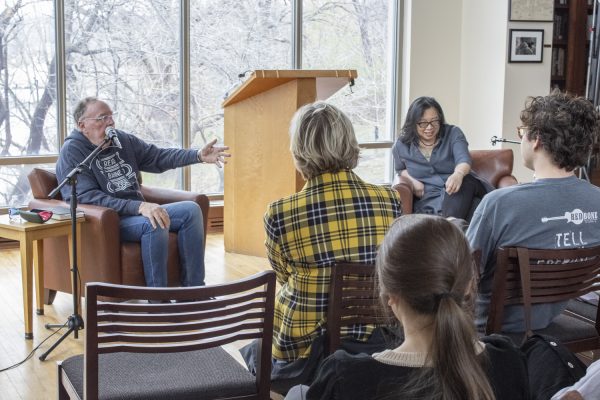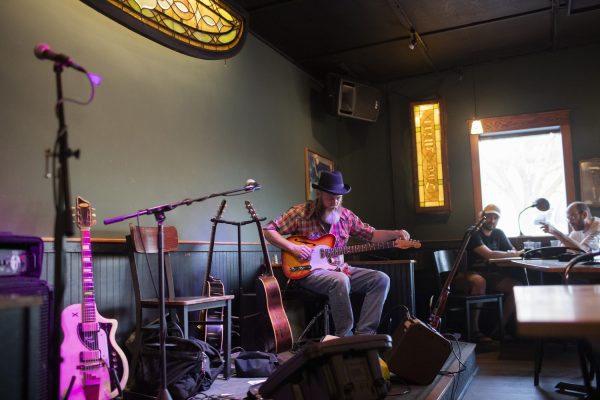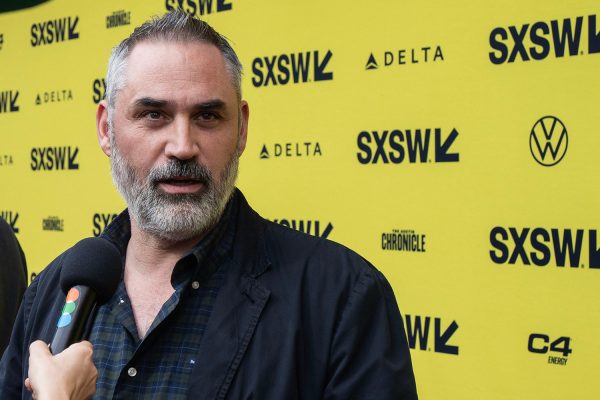Ask the Author: Robin Hemley
Robin Hemley was the director of the Nonfiction Writing Program at The University of Iowa for nine years. He has published fifteen books of fiction and nonfiction, including his most recent, ‘Oblivion, An After-Autobiography.’
May 12, 2022
Robin Hemley was the director of the Nonfiction Writing Program at The University of Iowa for nine years, inaugural director of The Writers’ Centre at Yale-NUS, Singapore, and is a graduate of The Iowa Writers’ Workshop. He has published fifteen books of fiction and nonfiction, including his most recent, Oblivion: An After-Autobiography. Oblivion explores the concept of ‘the cafe of minor authors,’ or the place minor authors, or authors with small audiences, are sent after they die.
The Daily Iowan: What inspired the cafe of minor authors?
Robin Hemley: I was thinking about how when musicians die, especially rock musicians, they say, well, ‘that person has gone up to the great rock and roll band in the sky,’ and I just was thinking one day, well, ‘I wonder where did writers go?’ And I thought, well, at least the minor ones, probably go to the cafe of minor authors. It just seemed like a fun idea, and so I went with it.
DI: How do the authors in the cafe behave?
Hemley: [They] Behave like some authors do. And, you know, they meet in coffee shops that gossip — they talk about their careers. They obsess about their careers, and they also talk about other writers. Who they’ve read recently, that type of thing. What might normally happen in a cafe except that in this case, they’re no longer alive.
DI: Why write?
Hemley: Well, it’s a big question, obviously, and it’s something that a lot of writers wrestle with. I come from a family of writers. My parents were both well-known writers in their day and translators and editors and publishers. So I grew up with this idea of writing, being in itself, a worthwhile activity, but everyone wants to make a mark of some sort, and, or communicate with others, whether they’re alive or with other writers from the past and in their own writing. So, to me, there are a lot of different answers to this. You know, why do artists paint? Why do musicians make music? You know, obviously, there’s a certain sense of self-expression, but depending on your audience, not everyone has millions of people listening to their music or buying their heart for millions of dollars or not everyone’s New York Times bestseller. And so there’s some intrinsic value to it as well, but, everyone wants to, as I said. They want to make their mark and sometimes it’s just a kind of sense of, you have some way of sort of understanding who you are, and you know, how you relate to other people, and I think that that’s an important aspect of writing. At least to this for me.
RELATED: Internationally acclaimed author and Iowa Writers’ Workshop alum T.C. Boyle to return to Iowa City
DI: How do unfulfilled dreams affect a person’s life and outlook?
Hemley: I think people either accept that or they don’t, or they modify their dreams or they understand that their dreams have been great fuel for them. But beyond that, what kind of value do they bring to their lives? Even if these dreams go unfulfilled, it seems that we’re always having to make the most of it anyways, are always having to make some kind of compromise in between our expectations and what happens and it’s a matter of not letting those expectations rule you, to the point where you’re unhappy because how one makes one’s mark is relative. I think a lot of young writers or beginning writers have grand dreams and sometimes those come true, but, sometimes they don’t and then they have to figure out what it is that they’ve been doing. That is fulfilling regardless, because when I first started writing, I thought, ‘if I publish a book, and it gets reviewed in the New York Times I can die happy,’ and then actually, I published a book and it got reviewed in the New York Times really well and, and yet, I still want more. 15 books later, sure, I still want more, and I don’t know any writer famous author who feels that they have gotten exactly what they deserve in terms of readership. My cousin, who is a former agent knew the very famous writer, Philip Roth, she told me not too long ago that she used to run into him in Manhattan, and that at one point, he told her, he said, ‘You know, I don’t know. I don’t really think the literary establishment takes me very seriously,’ and she said, ‘What do you mean, you’re Philip Roth, of course they take this seriously.’ It goes to show that there’s a difference or a disparity between the way people see themselves in their own minds and the way that other people see themselves, even people as well-known as Philip Roth, can be insecure about their place in the world.



